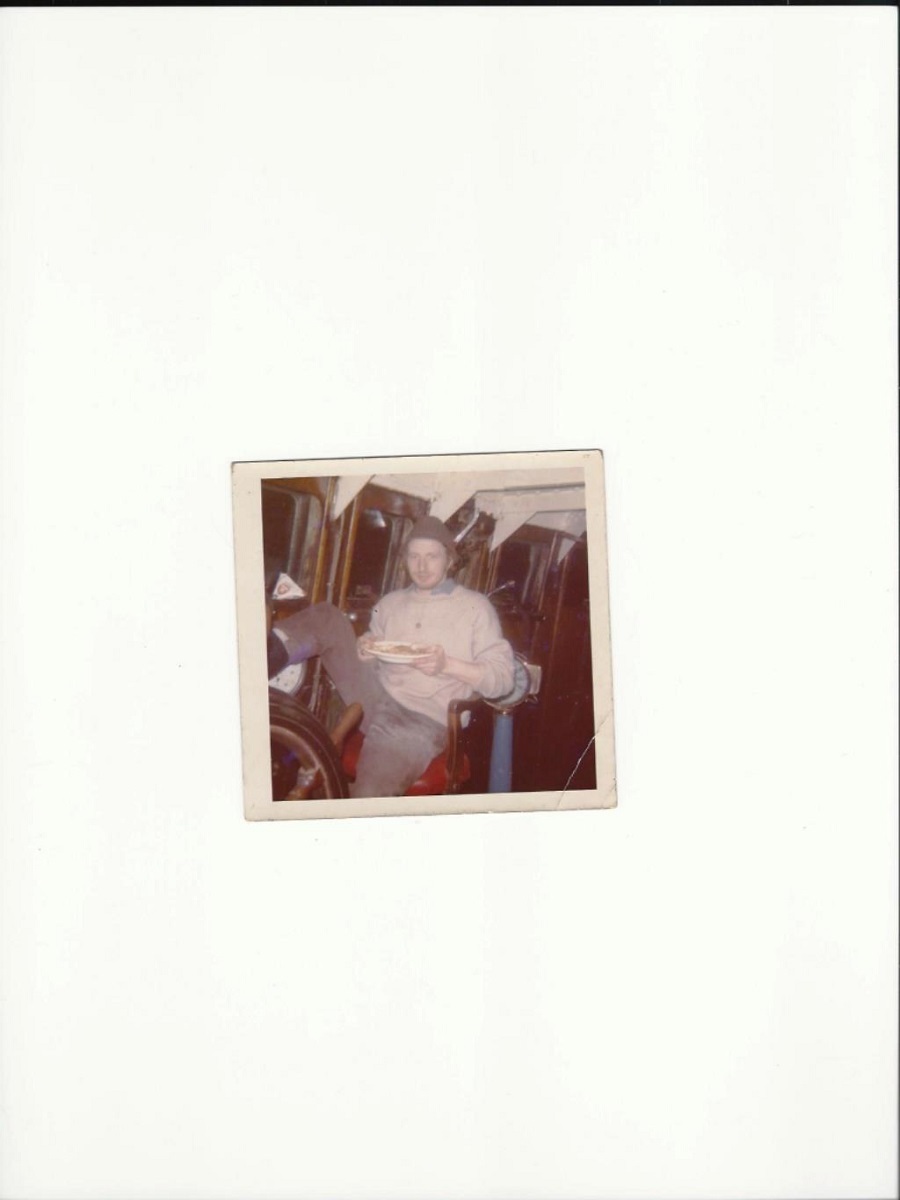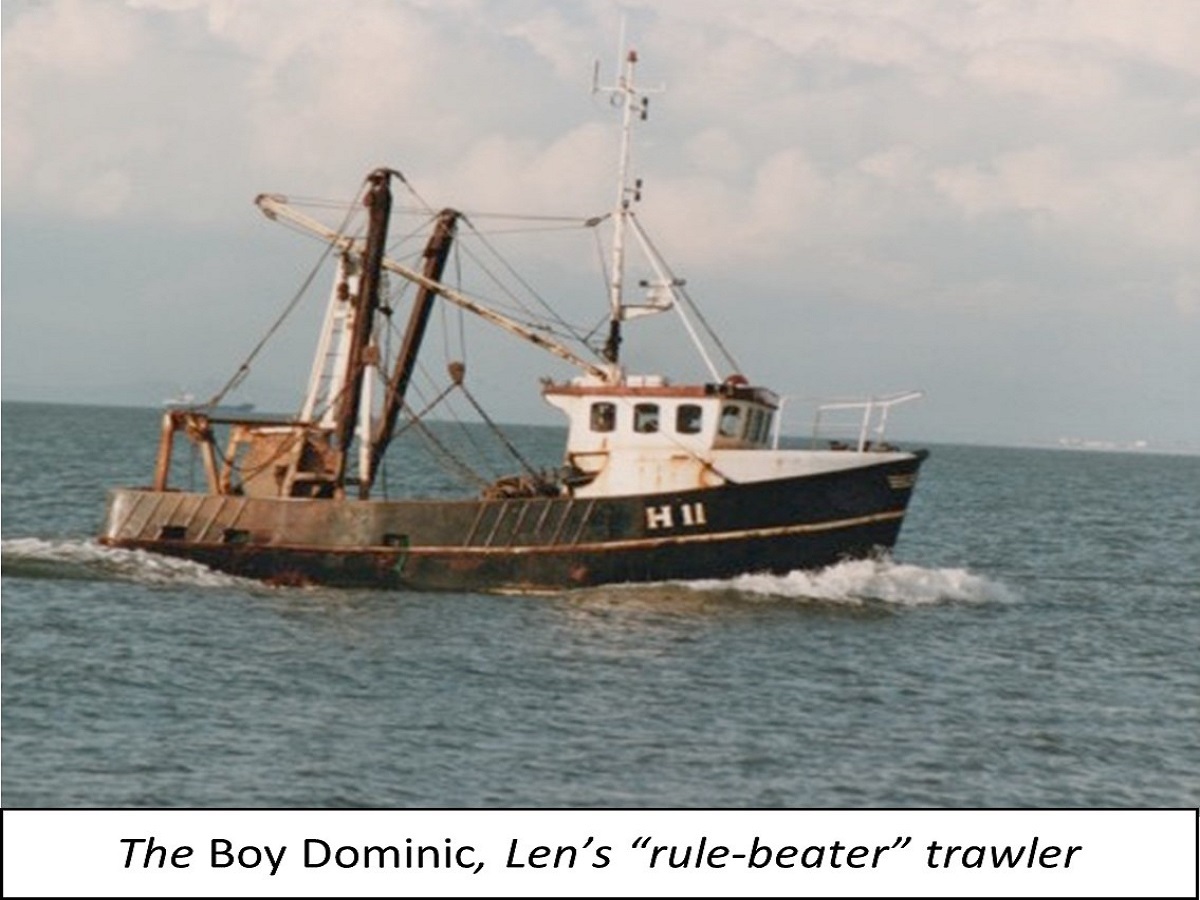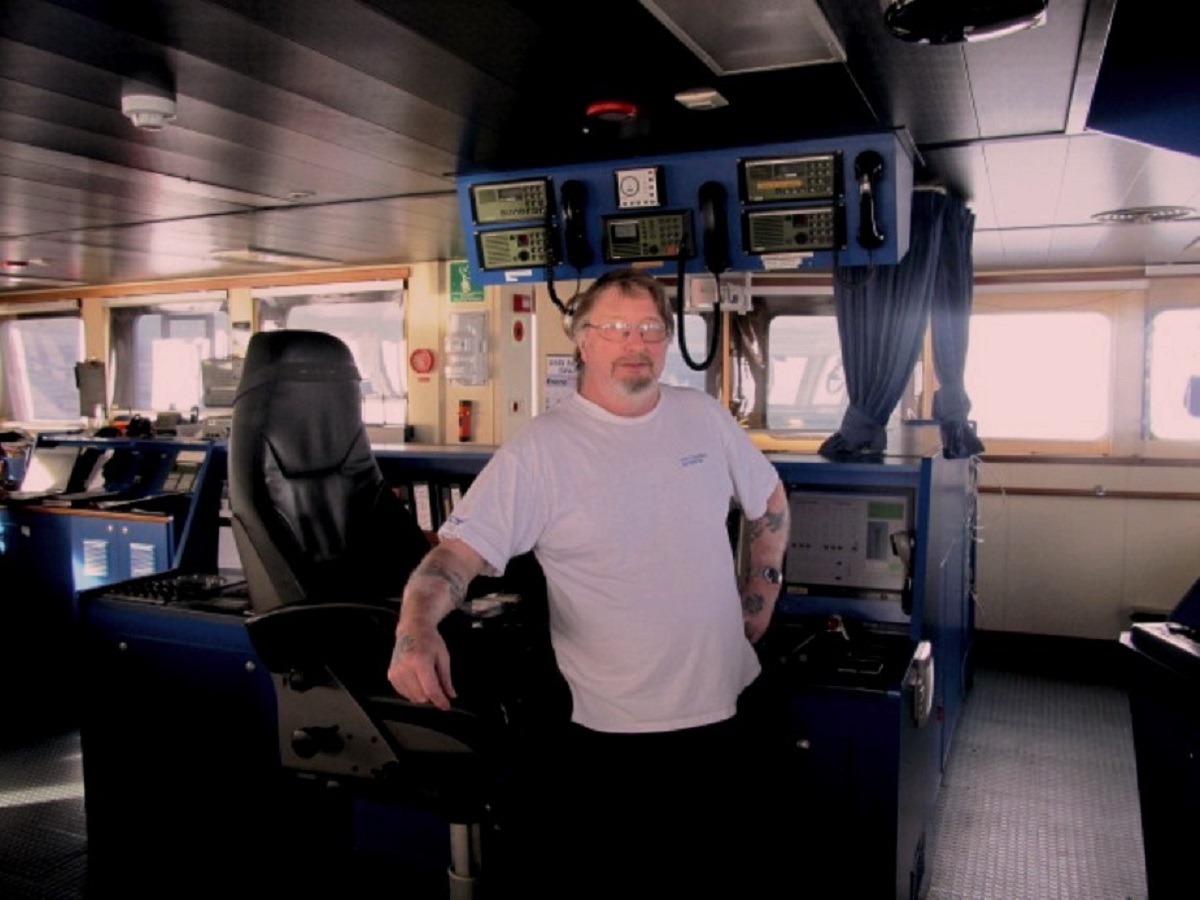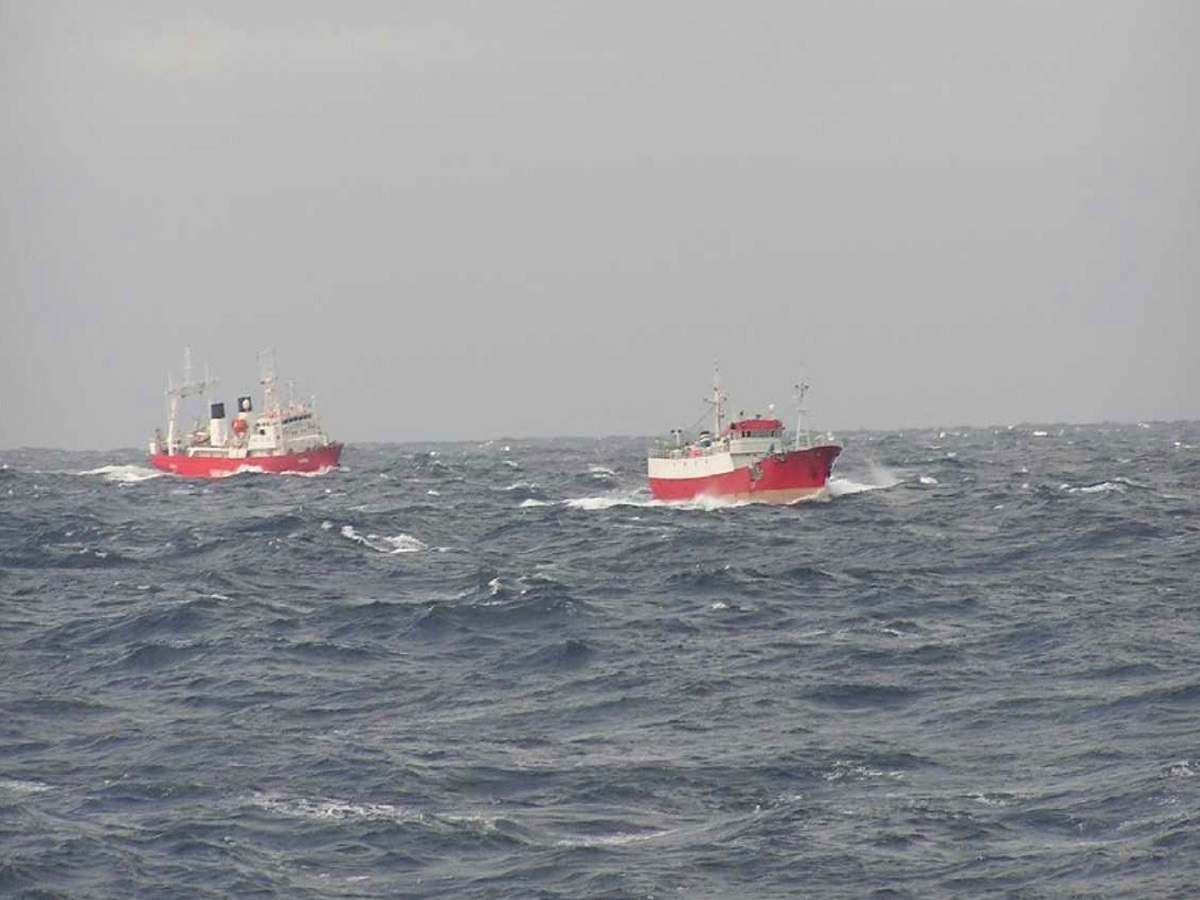3rd December 2020
By Maritime Media Volunteer, Ben Lanham.
A life at sea was not an uncommon path for Hull men during the city’s fishing heyday, but for Len Featherstone it has been a life of adventure.
Growing up on Hessle Road, the fish docks were a part of Len’s childhood and always a source of interest – he was from a merchant navy family, and attended the Boulevard Nautical School to follow in the footsteps of his two uncles, but the allure of the fishing industry could not be resisted for long.
After his time at Boulevard came to an end, Len spent a brief spell as a galley boy on the side trawler Cordella, peeling potatoes and enduring seasickness as the ship rolled from side to side in the waves.
Far from putting him off, though, the experience only spurred him on, and he soon signed on to another trawler bound for Iceland as a decky learner, a role he found vastly more enjoyable than being stuck below deck in the galley.
Len must have had a natural affinity for the work, as he progressed through the ranks quickly enough to get his mate’s certificate in 1967 at the age of 21, and after the requisite spell as bosun he sailed on his first trip as mate on his 22nd birthday! A year later, he’d got his skipper’s certificate too.
Len’s career as a skipper was eventful to say the least. Taking charge of the St Leger and then the St Alcuin during the height of the Cod Wars, his fishing near Iceland placed him in the midst of the action – in the St Alcuin, a notable confrontation with the Icelandic gunboat Albert (the antagonist of many a British trawlerman of the day) ended favourably for Len after the coast guard ship tried to cut his ship’s trawl wires, failed, and had its own warp cutter captured in the process!

Alas, in the aftermath of the Cod Wars, the fishing industry started to decline, and after a few more years on trawlers Len took the offer of a place on a research ship in Saudi Arabia, assessing fish stocks around the Farasan Islands.
He was back and forth between Britain and Saudi Arabia for a while, switching between research ships and purse seine trawlers and supply ships, until finally the opportunity came to get back into fishing properly.
A friend in Saudi offered Len a job on the largest beam trawler in England, and he jumped at the chance – only trouble was, he had no idea how beam trawling worked!
For a year, then, he sailed as a supernumerary with a Dutch crew to learn the ropes, and, picking it up with remarkable ease he went straight back as the skipper of a beam trawler and found great success.
However, as the common fisheries policy placed more and more restrictions on his craft, Len found he had to get creative to keep making a living doing what he loved. The Boy Dominic was the name of the craft Len decided to have built for him, and it was a so-called “rule beater” – the nickname given to the sub-10 metre vessels built en masse during the mid-late 1980s to be able to fish inshore without falling foul of the law. It worked – for a while. But the fishing industry is fickle, and by 1997 Len found it was no longer a viable way to make a living, sold the Boy Dominic, and began the next chapter of his career, in fishing research.

Starting off as fishing master on the research vessel Scotia, Len spent 5 years working with scientists to assess fish stocks in Scottish waters, was promoted to fishing master to captain, and was then offered the chance to captain a similar vessel much further afield – the Dorada, based all the way down in the Falklands and travelling even further out to South Georgia, a remote island in the South Atlantic.
South Georgia is a unique place, Len said, with little but the research station manned by a handful of people in the harsh winters, but more in the summer along with tourists visiting the grave of famed Antarctic explorer Ernest Shackleton.

It has something of a Hull connection too, in the form of the Viola, a Hull-built vessel from 1906, making her the oldest surviving steam trawler in the world – efforts are ongoing to raise funds to return her to Hull.
Len enjoyed his time in the far south of the world, and it was far from devoid of excitement – in 2005, the Dorada was involved in what was at the time the longest chase of an ocean poacher in history, a three-week pursuit of the Viarsa, an illegal long liner caught fishing in Australian waters.

Chased by the Australian ship Southern Supporter, Len got a call from the British government to intercept the rogue fishermen, along with the tug John Ross from Cape Town. The pursuit lasted for 7,200 km, but eventually Len and the other ships giving chase managed to surround their target about 4,000 km from South Africa. Speaking to the captains of the other vessels, Len found an amazing coincidence – the skipper of the John Ross was from Hull, and had been involved in the Cod Wars! Not only that, but the captain of the Southern Supporter had been in the navy in the Cod Wars too! It must be a small world indeed.
The Dorada was sold in 2009, and Len made the trip to Denmark to hand her over to her new owners before returning to the south Atlantic to continue his work, this time working for Byron Marine and the Falklands government developing a new deep sea fishery, finding suitable ground and assessing fish stocks as fishing master aboard the Spanish vessel. At the time, he was also employed by the government of South Georgia to continue monitoring and sampling populations of ice fish and establishing new fisheries in the region - something that requires a lot of work to comply with the strict conservation regulations – and for Polar fisheries as pelagic advisor. But the ice fish populations are beginning to dwindle now as the ocean warms – Len noted that it’d been up to 5 or 6 degrees warmer in the Antarctic than usual recently, and fishing is much trickier as a result.

Len’s work in South Georgia finished in 2019, but for a while when he’s been back home in Hull from months working far away, Len has volunteered on the Arctic Corsair, taking tour groups around the ship, explaining its workings and its history and telling all sorts of stories about life on a trawler. He plans to continue – Len says every time he steps on board the Corsair it feels like a part of him, a part of his past, and everything he sees in every area of the vessel reminds him of a different story to tell.
Here’s hoping it’ll be open for business again soon!
